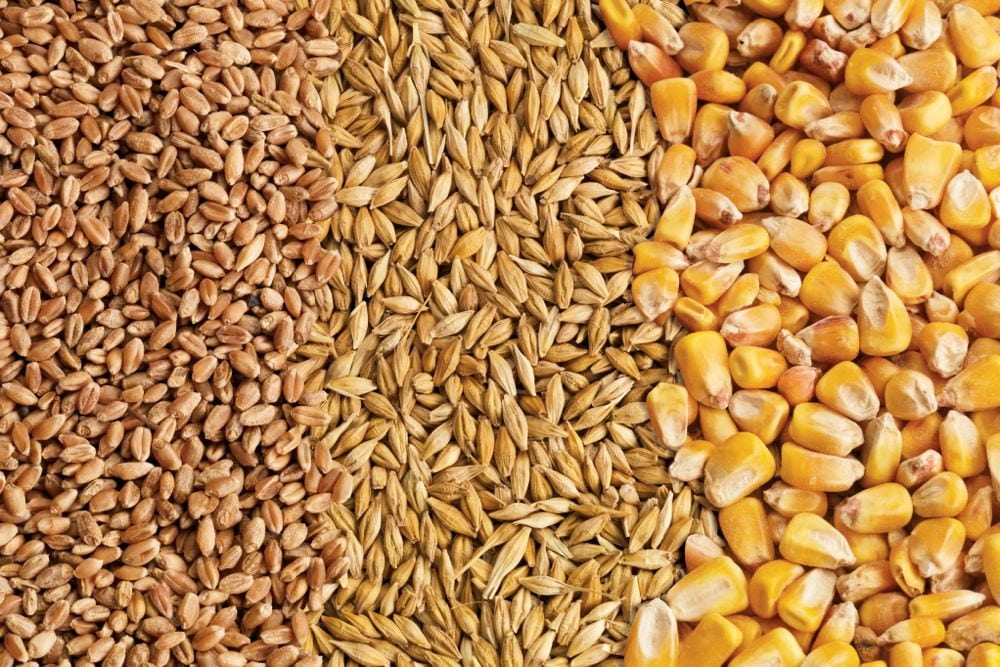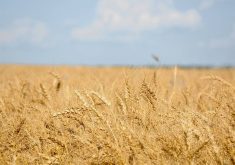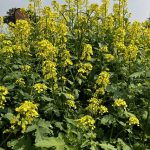Battered by discoveries of a deregistered genetically-modified flax variety in exports to GM-shy Europe, Canada’s flax industry says a plan to require certified seed for export is the “best opportunity” to restore market access.
The Winnipeg-based Flax Council of Canada said in a release Thursday that putting a certified seed protocol in place for all Canadian flax destined for Europe is “the only feasible option for testing and ensuring the seed supply is Triffid-free.”
“Triffid” refers to CDC Triffid, a GM flax variety that bred in Saskatchewan in the 1990s, deregistered in 2001 and never commercialized, at the behest of a flax industry that feared losing market access to Europe if a GM flax were introduced.
Read Also

Feed Grains Weekly: More consideration being given to U.S. corn
There’s beginning to be a shift within the Canadian Prairie feed market towards importing United States corn, said Darcy Haley, vice-president of Ag Value Brokers in Lethbridge.
“We must act quickly and send a strong signal to our European customers that we are doing everything we can to eradicate Triffid from Canadian flax,” council president Barry Hall said in the release. “With Europe accounting for over 70 per cent of flax exports, the very future of our industry is at stake.”
“While certified seed is subject to rigorous quality standards and can be efficiently tested, there is no effective way of testing all farm-saved seed from all 12,000 flax growers in Western Canada in a timely manner or ensuring the reliability of the samples,” the council said.
The council noted that it developed a “comprehensive” testing protocol and explored a variety of potential alternatives before concluding that certified seed was the best solution.
The council said a certified seed policy would only apply to “sensitive” markets and will only be required until Triffid is considered to have been removed from the seed supply.
“Get it right”
“We will be dealing with a professional organization where all the names and places are documented and can be easily contacted versus thousands of producers scattered across the Prairies,” Garvin Kabernick, chairman of the Manitoba Flax Growers Association, said in the council’s release.
“We may have only one opportunity to restore the confidence of our European customers, so it is crucial that we get it right,” said Kabernick, who farms at Sanford, southwest of Winnipeg.
The council said it also “took issue with those who have misrepresented the plan as a move to restrict farmers from replanting their own seed.”
The council didn’t name “those,” but the Saskatoon-based National Farmers Union, in a separate release Monday, had ripped grain handler Viterra and others pushing for the new protocol.
“The best solution is to test the seed supply, both farm-saved seed and certified seed,” said NFU president Terry Boehm, a flax grower from Allan, Sask.
“It is false to simply assume that certified seed is safer than farm-saved. For one thing, it is almost certain that the certified seed system is the source of the Triffid contamination farmers are now facing.”
Also, “it has now been determined that two varieties of flax are contaminated with Triffid at the breeder seed level,” Boehm said, naming the affected varieties as Normandy and Mons.
It’s feared that companies will “exploit” the Triffid issue to force a long-term requirement for mandatory purchases of certified seed, and that such a requirement could soon spread to other crops, Boehm said.
Boehm said Viterra and “other powerful grain companies” mustn’t be allowed to dictate seed policies.
“Under the Canada Grains Act, Viterra cannot refuse grain deliveries if they have space,” he said. “Thus, Viterra cannot unilaterally declare that all production must be from certified seed.”
“This is not an issue of certified seed versus farm saved seed,” Hall countered in the Flax Council’s release Thursday.
“This is a critical market access issue that affects growers, seed companies and grain companies as well as our end use customers. To resolve it requires extraordinary measures.”
CDC Triffid (which shares its name with a star-forming nebula in deep space and a venomous mutant plant from a 1951 British sci-fi novel and 1962 film, The Day of the Triffids) was bred at the University of Saskatchewan’s Crop Development Centre for tolerance to soil residues of sulfonylurea herbicides.
Such residues have been known to cause damage to conventional (non-GM) flax and keep the crop out of rotation for years on sulfonylurea-treated fields.














